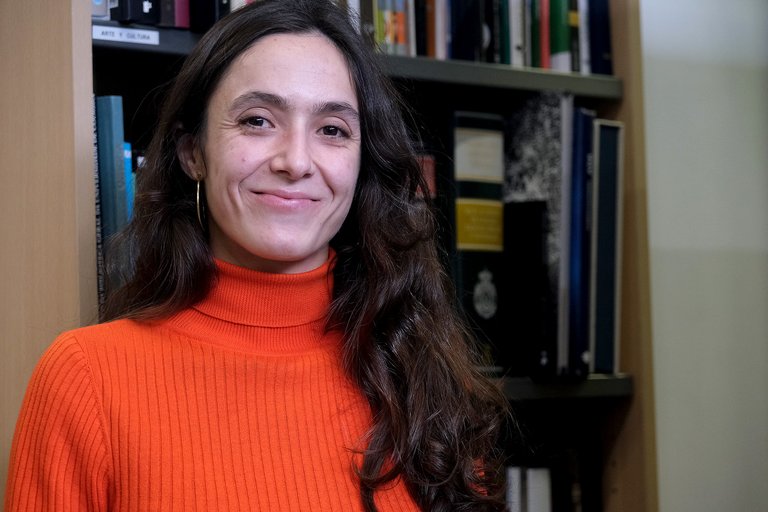"We make small universes, let's see if they look like the real ones."

Lurdes Ondaro Mallea is a physicist and researcher in computational cosmology. He confessed, however, that as a child he was not one of those who looked at the sky. Later she felt her desires: “I liked to see documentaries of La1, of space, of quantum… I wanted to know more, and for that I knew I would have to learn and decided to try it.”
This curiosity drove him to study physics and came to random cosmology. “It was by chance, like almost all the things that happen in life. When I finished my career, a summer at a research center in San Sebastian. You can do things about the career of the Donostia International Physics Center, and there I did a three-month job in the summer, in cosmology. And I liked it, and I followed it.”
According to Ondaro, astrophysics is better known than cosmology. Thus, it explains the difference between the two: “Astrophysics contemplates stars, celestial objects, stars, black holes, galaxies or whatever. Cosmology investigates the universe as a whole: the creation of the universe, its evolution, its current structure… The big questions of always, where we come from and what the rules of physics and things like that are. To respond to this, on the computer, we do small universes (simulations) and we do tests, to see if they look like the real universe.”
On the other hand, although physics is the most masculinized part of the scientific fields, Patrimony has not been able to see its influence. She has made it clear that there is a big difference in age: as the percentage of men increases, it is higher, while among young people a significant percentage are women. “Despite the difference in numbers, it is increasingly smaller, and in cosmology it is even smaller compared to other areas.”
Citrus fruits and verses
Right at the time of the interview is in Paris, in a congress, and because it's a young congress, there are many women in the world. Although congresses in general may become exhausting, it is satisfactory. For the rest, she loves to research, ask new questions, discuss with her colleagues, invent new projects together… But she also has a bad side: “In general, I don’t like how the system is built. On the one hand, it's very unstable. And then there's a lot of competition and a lot of interest, and you have to publish articles -- but well, apart from that, it's a really interesting job."
Ondaro is also bertsolari and, asked if the activity bertsolari helps you in something in the research, he replied no: “From the point of view of creation, I find different things. In any case, it can help keep calm in the talks and in the public exhibition. But for nothing else, I don’t think so.” That was the last point, before returning to the tasks of the Congress session.
Buletina
Bidali zure helbide elektronikoa eta jaso asteroko buletina zure sarrera-ontzian












